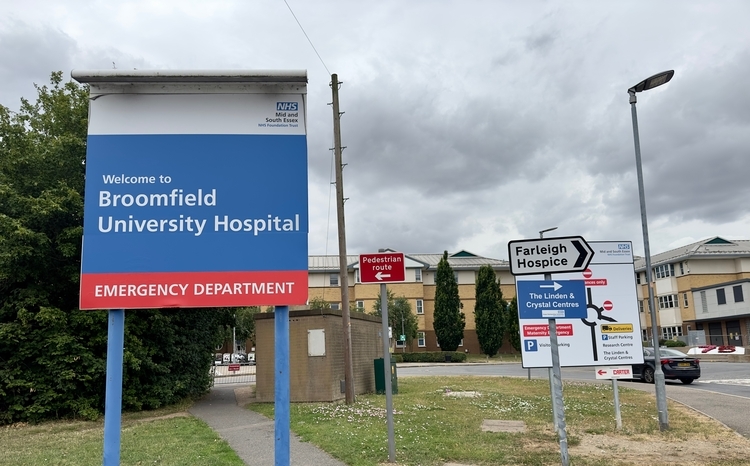What can lesser-digitised trusts learn from recent EPR deployments?
- 16 June 2022

Recent electronic patient record (EPR) targets have shown more of a focus on the less digitally mature NHS trusts. In light of this, Dr Anna Bayes, international medical director at Altera Digital Health explores what the lesser-digitised trusts can learn from recent EPR deployments.
The recent segmentation of trusts as part of NHS England’s Frontline Digitisation Programme shows the relative stage that health providers across the country are at on their journey towards being paper-free at the point of care using digital technology. Whilst only an indicator, the various digital maturity groups highlight trusts that are excelling in digitisation and help stratify those at other stages of their digital maturity. For those procuring or in the early stages of deploying an EPR, this benchmarked data will help ensure their leaders have evidence to support investment decisions.
The need for digital transformation
Historically, digital transformation in the NHS has taken longer than any of the stakeholders would have hoped. Designing, configuring, and implementing a clinical system to optimise clinical workflows for multiple professionals and specialties across a busy acute hospital whilst maintaining 24/7 care was never going to be straightforward. Engaging future users in this work is essential in ensuring buy-in for changes in processes and sustained adoption of new systems. Having the programme led by clinical and operations teams with significant buy in is crucial. Even after initial deployment, the work is not complete; the journey to full digital transformation is just beginning. The ongoing need for training, and tweaks to configuration and optimisation, requires sustained effort and clinical leadership.
Covid-19 provided a unique opportunity to change care delivery methods and highlighted the need for digital tools to support clinical management. Both injected momentum and innovation into a much wider pool of clinicians. For many, new technology and its adoption became top-of-mind as opposed to something that was happening in the background. It is critical that NHSE, providers and suppliers work together to ensure this momentum persists and that organisations at the early stages of digital transformation are bolstered by the successes of those further ahead. In particular, these organisations will see what is possible and challenge the standard deployment models for EPR, increasing agility and operational engagement.
Not only are clinicians proactively demanding clinical systems to support their work, they are also far more open to changing the way they work to ensure it is safe, efficient and adheres to best-practice guidelines. Most of all, they should be motivated by the evidence that achieving benefits of EPR deployments no longer requires timelines of many years—deployments can be accelerated, and benefits documented in a matter of months. The recent targets set by the Secretary of State for Health and Social Care are a positive sign that resources and funding to move digital transformation forward in these areas will be found.
With a phased approach, trusts like Medway NHS Foundation Trust and Gloucestershire Hospitals NHS Foundation Trust have proven that an EPR can be implemented in months, not years, without any compromise on quality, safety or usability.
Clinically driven digital maturity
To prove that point, Medway NHS Foundation Trust, a trust that has historically been on the digital backfoot, went live with their patient administration system back in 2015. Despite realising benefits such as improved patient flow, the trust found that with approximately 80 different clinical systems running alongside the PAS, it was having to rely heavily on paper documentation and that it was still struggling to manage siloed data. To address the problems it was facing, in November 2021, the trust went live with their EPR. This provided the core repository and workflows for clinical data and the ability to join up non-integrated systems. Immediately following go-live, the trust demonstrated that staff had increased time-to-care and streamlined clinical processes.
With collaboration between the programme and clinical teams prioritised from the very start of the project, the trust deployed Altera Digital Health’s Sunrise, the EPR in question, in less than five months. This was one of the fastest EPR deployments on record in England and made Medway an award-winning organisation.
At less digitally mature trusts like this, on-call clinicians are now saving up to 30 minutes per patient, as they can now log into the EPR remotely and obtain a full view of the patient record, resulting in faster decision-making, speedier diagnostic tests and, thus, improved patient outcomes.
Delivering efficient, integrated care
By keeping the existing PAS intact and layering EPR functionality on top, these trusts with lower maturity scores can accelerate their transformation, recognise clinical benefits, and deploy flexibly, at their own pace. By removing the need to rip and replace existing systems, trusts can produce immediate value, implementing new modules and functionality as and when it is needed. Taking this approach will place less mature trusts in good stead to meet the Secretary of State’s technology targets and level up transformation across the NHS.
The ability to deliver joined up care is not something reserved for just the most digitally advanced trusts – it can become a reality for all organisations. The key ingredient is a commitment to collaboration, across programme and clinical teams, to realise what is possible.




